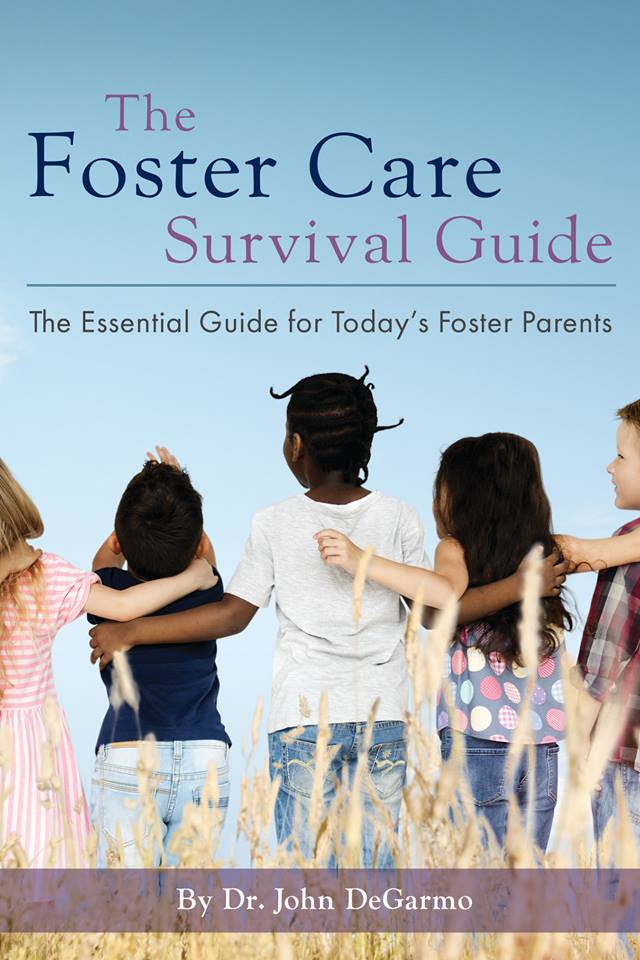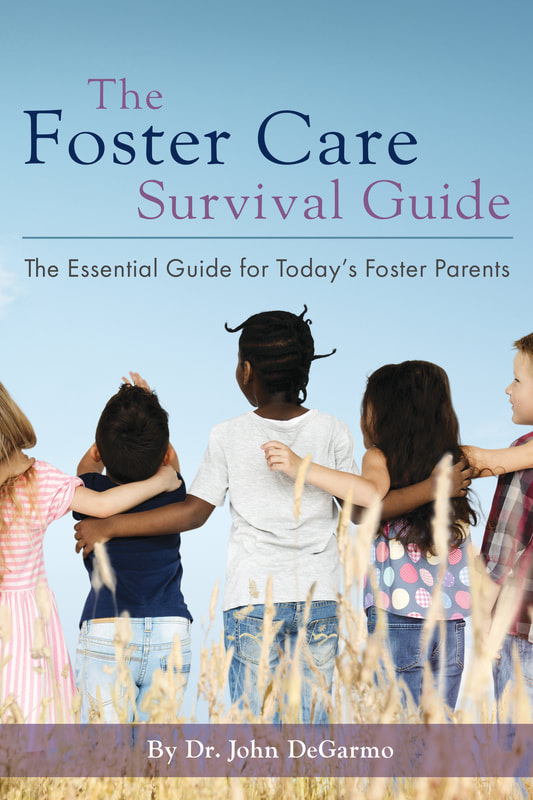
Well beyond the lack of groceries, baby wipes, diapers, and even toilet paper, foster parents are struggling.
Many foster parents are concerned, confused, and looking for answers yet receiving little guidance. For many foster parents, the lack of supervision has been an especially challenging one. Many foster parents are employed full time, and work during the day, while the children placed in their home from foster care are either in school, or at day care. Other foster parents are faced with the difficulty of getting the services and support they and the children placed in their home both need.
Plus, it should come as no surprise that the anxiety level in the children living in your home is most likely off the charts. Children in foster care often suffer from high anxieties, due to the trauma they have experienced prior to coming to live with you. For some foster parents, they are struggling with a whole new world of homeschooling the children placed in their homes; homeschooling children who are behind in school. So many foster parents have never had experience teaching beforehand, and now they are teaching children who have learning disorders and challenges. Now, in this time of uncertainty, of self containment, of social distancing, the cancellation of visitations with their birth family members, of too much time on social media, phones, and electronic devices (and the tremendous danger that comes from this, right now, during the Coronavirus,) the anxiety within them has only grown and will continue to do so.
The result: foster parents are exhausted. You, me, all of us. We are exhausted, filled with our own anxiety and confusion. As we struggle with the Coronavirus, foster parents are in jeopardy of burnout, of stress, of compassion fatigue, and even of ending their time as foster parents.
Let there be no mistake; foster parenting is hard work, even before the Coronavirus exiled us all in our homes! It may just be the hardest work you ever do. You will often find yourself exhausted, both mentally and physically, and feel drained. There is very little money available to help you, and you will not be reimbursed for all the money you spend on your foster child. The job will require you to work 24 hours a day, 7 days a week, with no time off. You will probably feel overworked and under appreciated, especially now during this pandemic. You will work with children who are most likely coming from difficult and harmful environments. Some of these children will have health issues, some will come with behavioral issues, and some will struggle with learning disabilities. Many times, the children that are in your homes with will try your patience, and leave you with headaches, frustrations, disappointments, and even heartbreaks.
Join the thousands who receive Dr. DeGarmo’s FREE foster care newsletter. Simply fill out the form below.
Foster parents like you are getting burned out, right now, during this time of Covid 19. One of the keys to preventing burnout during this time is through awareness. Once you are aware that you are truly exhausted and facing burnout, you can then take steps to better care for yourself. If you are feeling exhausted, run down, depressed, unmotivated, hopeless or powerless, or even feel like running away, you may be experiencing burn out. Changes need to be made, otherwise you will not only suffer, but your marriage, your family, your children, and even your job will suffer, as well. There are a number of other ways to help reduce stress and burnout, including lifestyle changes, diet, exercise, and even online support groups. If burnout is left untreated or ignored, there can be serious complications for not only the foster parent, but for the foster child, as well. After all, if you are too exhausted and feeling burn out, you will have a difficult time giving the love and support a foster child sorely needs.
When we lose our control, or lose our patience, with a child, we lose control over the situation itself. When children see us lose control ourselves, it may suggest to them that the response they chose was the right one. It is important to remember that many children in foster care have never been in an environment where issues are addressed in a calm and rational manner, but instead in one of anger and hostility. Your own loss of patience and control reinforces to them that this response is normal, and acceptable. When a child in your home is trying your patience, as the saying goes, try and remain calm. Respond to the child in a calm fashion, and with compassion and patience. Not only will you show the child that you can maintain control, you will also teach the child appropriate ways to hold discussions. Furthermore, help your own anxiety and stress level, helping you to prevent future burn out.
We also need to remember to stay in the moment, so to speak, to focus on the here and now, instead of what might happen, of what could be. When we worry about what might happen in the future, we lose the chance and the opportunity to embrace and enjoy what is happening in the present time. When we allow our worries and concerns overwhelm us about future events, we do not allow ourselves to be helpful to those around us in the present moment. We worry too much about the future due to the uncertainty of the Coronavirus. We grow concerned about what has not happened yet. We allow yourself to become overwhelmed with these feelings and these anxieties. My friend, that’s normal, and it is easy to do.
Instead, we need to remember to stay in the moment, so to speak, to focus on the here and now, instead of what might happen, of what could be. When we worry about what might happen in the future, we lose the chance and the opportunity to embrace and enjoy what is happening in the present time. When we allow our worries and concerns overwhelm us about future events, we do not allow ourselves to be helpful to those around us in the present moment. As foster parents, we can’t care for, help, teach, and love the children living with our family, children that need us to be with them right now, in the moment, if we are overwhelmed with things we have no control of tomorrow, next week, or next year.
Sure, you feel worn out, exhausted, and have lack of energy. You feel as if you simply do not have any energy whatsoever. Yet, exercise goes a long ways towards treating burn out. Studies indicate that exercise is able to act as a sort of antidepressant medication, in that it helps to treat moderate depression. Furthermore, when you exercise regularly, it also helps to prevent future burnout. You see, when we exercise, it helps to do all kinds of wonderful things to our brain. There is neural growth, endorphins are released, strong chemicals run through our rain helping us to feel great and revitalize our well emotional well-being. Along with that, it simply helps to serve as a distraction to what is troubling us. Instead of focusing on all of our worries and concerns, we are instead focused on walking up that next hill, running that extra mile, lifting even more weights, or whatever type of exercise and workout you chose to begin with. Plus, as my wife tells me, it allows us to have a break from the norm and gives us some quiet time.
Speaking of my wife, she is a doctor of nutrition. In our home, it is all organic, all natural foods. None of that processed stuff on our shelves. If you have heard me speak at a conference or event, you know that I love my chocolate chip cookies, frozen pizzas, and sugary cereals. Yet, I can also tell you that I feel so much better when I cut out that junk food, and instead eat healthy. According to the other doctor in my house, my wife reassures me that when I eat the foods I enjoy eating, it leads to lack of energy and a crash in my mood. So, I have learned to reduce my sugar intake, eat a great and healthy breakfast, drink up to 8 glasses of water a day, plus follow a regular healthy diet. Make no mistake, this has helped me immensely, and is a strong contributor to treating burn out.
As a foster parent, you are probably asked when you sleep. We both know that finding sleep when you care for children in foster care and in need in your own home can be a challenge at times. When we are burned out, we may have trouble sleeping, or we may even sleep too much, as we feel like we just can’t get out of bed or make it through the day. Getting a good night’s sleep is essential to our health, our well-being, our productivity, and of course to helping treat burn out.
Yes, the Coronavirus is placing even more challenges and difficulties upon us, as foster parents. And, in truth, the children in our homes are suffering even more so, as well. Yet, we are given the chance, as foster parents, to save them from experiencing other future horrors and taking them away from dangerous situations. Without a doubt, this is a joy itself. As a foster parent, indeed, as a parent, you are making a difference! You are saving a child from harm! It is my hope that you continue caring for children in foster care. There are so many children in care, yet so few willing to help.
-Dr. John
Want MORE about this? Order your signed copy of the new book The Foster Care Survival Guide. Order your special copy HERE.







 RSS Feed
RSS Feed